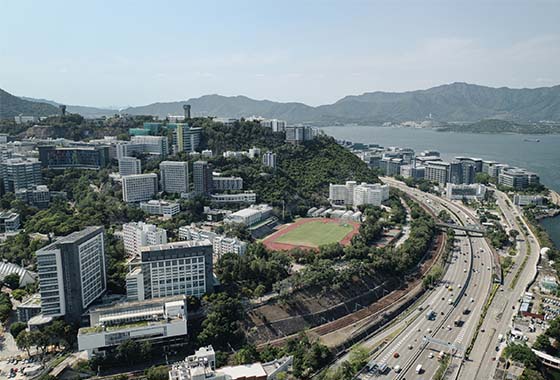Applied education should start from secondary school
Author: Victor Kwok, Head of Education and Youth of Our Hong Kong Foundation

Recently, the arrangement of Hong Kong’s Diploma of Secondary Education (DSE) exams has sparked a heated debate. One of the controversies is the possibility of cancelling the exams, should the situation of coronavirus deteriorate. In the event of cancellation, candidates will receive predicted grades based on their school records and their respective school’s performance in previous DSE exams. Such a proposal raises concerns about the impact on university admission and the fairness of grading standards.
In the end, all the anxieties around exam cancellation can be attributed to the exam-oriented culture in Hong Kong. We place too much emphasis on academic subjects as the sole criterion for university admission. Although such a culture is unlikely to give way or die out anytime soon, we believe that Applied Education can offer an opportunity for change.
Readers who have been following our series may have come across a previous article advocating for applied degrees. To achieve diversification of prospects for students, it is not enough just to open up pathways for further education and employment. Students should have future options introduced and explained much earlier on, in order to effectively change the exam culture.
Speaking of applied education in middle schools, we have to mention Applied Learning (ApL) subjects, aka Category B subjects of secondary school education. According to the Education Bureau, ApL ‘offers studies with equal emphasis on practice and theory linked to broad professional and vocational fields… helps provide students with holistic learning’. It enables students to ‘understand and experience the application of knowledge and skills in a workplace environment from an early age’. On the face of it, this fully complies with the definition and requirements of Applied Education. However, in last year’s DSE exams, only 7-8% of the candidates chose applied learning subjects. Among them, more than 99% took up only one ApL subject, meaning that the dominance of traditional Category A subjects was unquestionable. This serves as proof that the promise to achieve a balance between subjects was no more than an empty slogan.
The main reason is the lack of recognition: DSE exams are currently graded on a scale of 7 levels (from level 1 to level 5**), but the best result of applied learning subjects is capped at level 4. Unsurprisingly, students show little interest in these subjects or see them as filler subjects. Therefore, to enhance the status of applied education in secondary schools, a review of the scoring system for applied learning subjects is imperative. The Education Bureau may consider consulting an international review panel on assessment methods and curriculum design, whilst retaining the possibility of grading these subjects up to level 5** (perhaps adding further requirements to curriculum/assessment).

In addition, it should be noted that applied education is an interdisciplinary concept, not aiming at the acquisition of a certain type of knowledge or skillset but striving to maximise learning efficiency and facilitate the transition into society through the interaction between theories and practice. In order to effect a meaningful change in students’ mindset, we cannot rely solely on Applied Learning subjects; incorporating more practical elements into other subjects is also necessary. The Curriculum Development Council should expand the role of its Committee on Applied Learning, so that its impact can be extended to key learning areas (including but not limited to STEM), to assist schools in adjusting the curriculum to meet market needs and to prepare students for their future careers.
Increasing the practical relevance of each subject not only requires effort from schools, but also the participation and cooperation of industries. In order to promote collaboration between schools and the industry, the Education Bureau launched the Business-School Partnership Programme (BSPP) in 2005. Events organised by BSPP include lectures, workshops and business visits. However, besides event organisation, the government should consider the incorporation of industry know-how into the curriculum and assessments and invite industry professionals to act as evaluators on Applied Learning subjects, to create synergy between education and industry. The author believes that BSPP can assume the role of an intermediary to forge long-term collaboration between the two sectors. It can also lead the way in gathering resources and opinions from different sectors, including non-profit organisations.
A drastic change in our society’s culture cannot be achieved overnight, but to stop the creation and reinforcement of prejudices against Applied Education would be a starting point. Otherwise, we will be travelling in the wrong direction from the outset and pulling further and further away from our goal. Therefore, balancing the existing DSE exam subjects constitutes a crucial step towards changing public perception in the long run.



